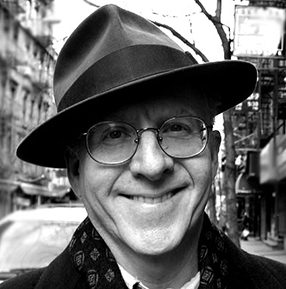Some people find out they are Jews.
They can't believe it.
They had always hated Jews.
As children they had roamed in gangs on winter nights in the old
neighborhood, looking for Jews.
They were not Jewish, they were Irish.
They brandished broken bottles, tough guys with blood on their
lips, looking for Jews.
They intercepted Jewish boys walking alone and beat them up.
Sometimes they were content to chase a Jew and he could elude
them by running away. They were happy just to see him run
away. The coward! All Jews were yellow.
They spelled Jew with a small j jew.
And now they find out they are Jews themselves.
It happened at the time of the Spanish Inquisition.
To escape persecution, they pretended to convert to Christianity.
They came to this country and settled in the Southwest.
At some point oral tradition failed the family, and their
secret faith died.
No one would ever have known if not for the bones that turned up
on the dig.
A disaster. How could it have happened to them?
They are in a state of panic--at first.
Then they realize that it is the answer to their prayers.
They hasten to the synagogue or build new ones.
They are Jews at last!
They are free to marry other Jews, and divorce them, and intermarry
with Gentiles, God forbid.
They are model citizens, clever and thrifty.
They debate the issues.
They fire off earnest letters to the editor.
They vote.
They are resented for being clever and thrifty.
They buy houses in the suburbs and agree not to talk so loud.
They look like everyone else, drive the same cars as everyone else,
yet in their hearts they know they're different.
In every minyan there are always two or three, hated by
the others, who give life to one ugly stereotype or another:
The grasping Jew with the hooked nose or the Ivy League Bolshevik
who thinks he is the agent of world history.
But most of them are neither ostentatiously pious nor
excessively avaricious.
How I envy them! They believe.
How I envy them their annual family reunion on Passover,
anniversary of the Exodus, when all the uncles and aunts and
cousins get together.
They wonder about the heritage of Judaism they are passing along
to their children.
Have they done as much as they could to keep the old embers
burning?
Others lead more dramatic lives.
A few go to Israel.
One of them calls Israel "the ultimate concentration camp."
He tells Jewish jokes.
On the plane he gets tipsy, tries to seduce the stewardess.
People in the Midwest keep telling him reminds them of Woody
Allen.
He wonders what that means. I'm funny? A sort of nervous
intellectual type from New York? A Jew?
Around this time somebody accuses him of not being Jewish enough.
It is said by resentful colleagues that his parents changed their
name from something that sounded more Jewish.
Everything he publishes is scrutinized with reference to "the
Jewish question."
It is no longer clear what is meant by that phrase.
He has already forgotten all the Yiddish he used to know, and
the people of that era are dying out one after another.
The number of witnesses keeps diminishing.
Soon there will be no one left to remind the others and their
children.
That is why he came to this dry place where the bones have come
to life.
To live in a state of perpetual war puts a tremendous burden on the
population. As a visitor he felt he had to share that burden.
With his gift for codes and ciphers, he joined the counter-
terrorism unit of army intelligence.
Contrary to what the spook novels say, he found it possible to
avoid betraying either his country or his lover.
This was the life: strange bedrooms, the perfume of other men's
wives.
As a spy he has a unique mission: to get his name on the front
page of the nation's newspaper of record. Only by doing that
would he get the message through to his immediate superior.
If he goes to jail, he will do so proudly; if they're going to
hang him anyway, he'll do something worth hanging for.
In time he may get used to being the center of attention, but
this was incredible:
To talk his way into being the chief suspect in the most
flamboyant murder case in years!
And he was innocent!
He could prove it!
And what a book he would write when they free him from this prison:
A novel, obliquely autobiographical, set in Vienna in the twilight
of the Hapsburg Empire, in the year that his mother was born.
Credit
From Valentine Place, published by Scribner. Copyright © 1996 by David Lehman. All rights reserved. Reprinted by permission of the author.
Date Published
01/01/1996

